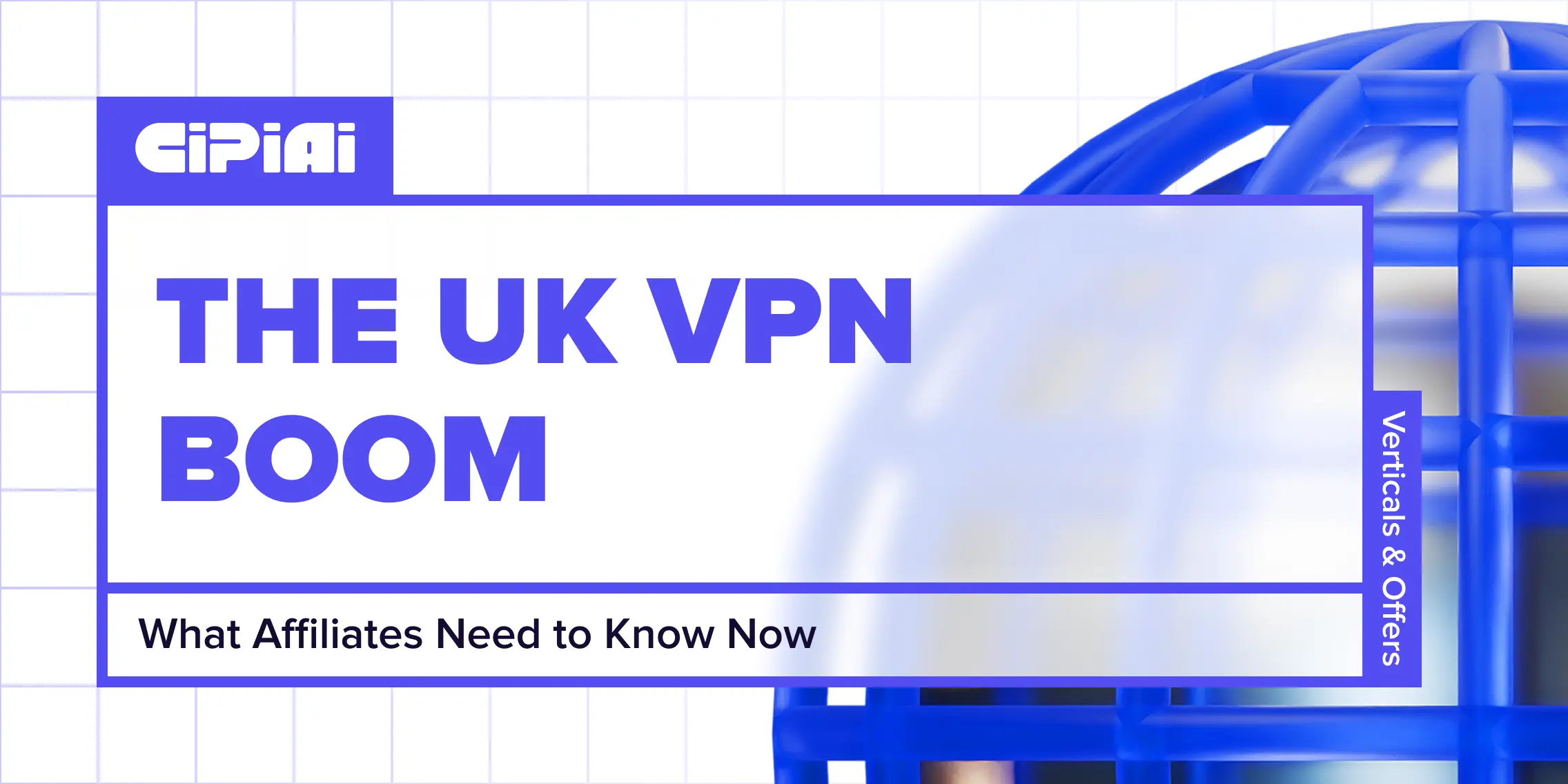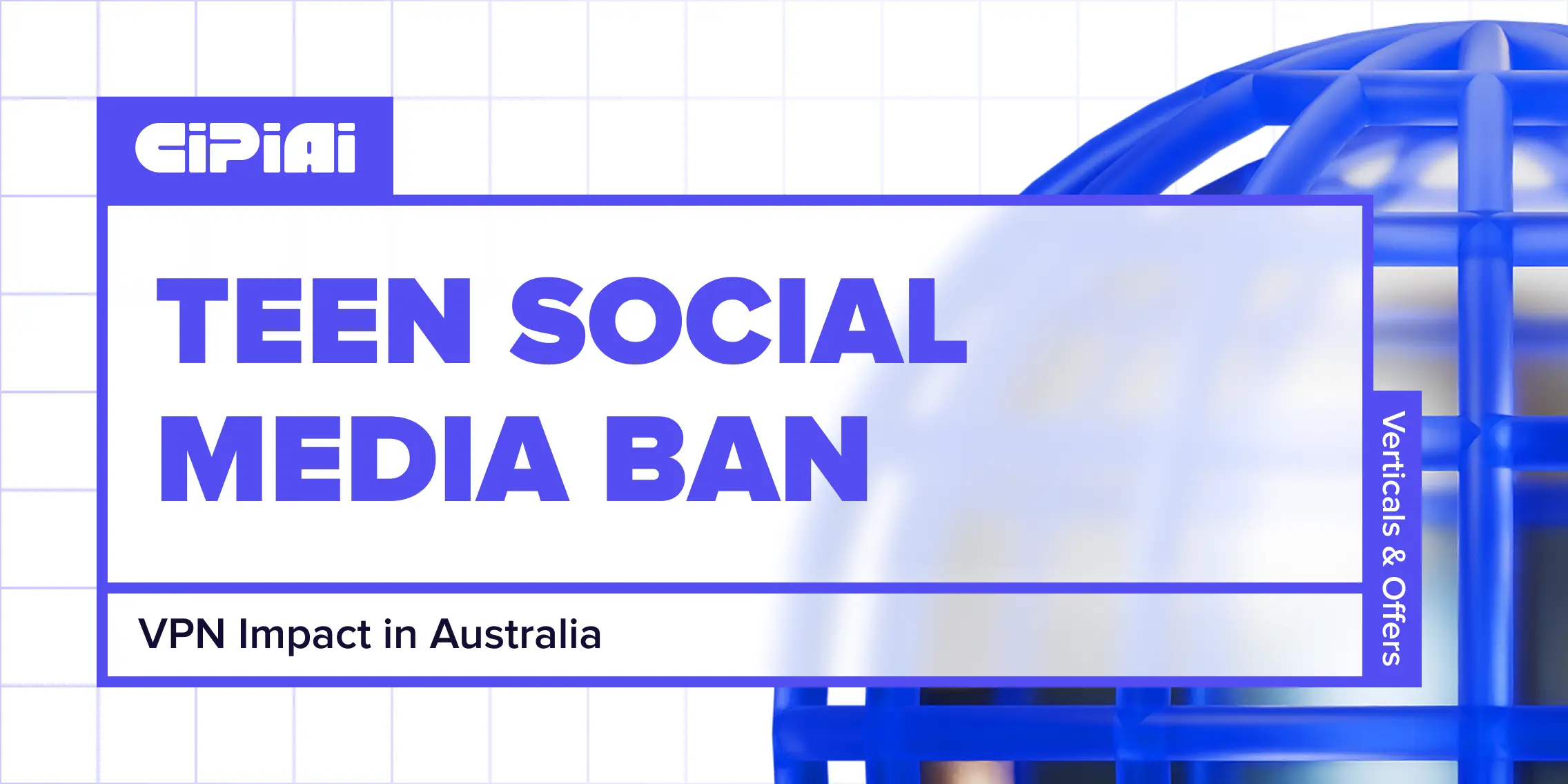
How UK VPN Surge Opens a Window for Affiliates (2026)
UK’s new age-verification rules triggered a VPN boom. Discover how affiliates can leverage this privacy shift — with vetted offers and mobile-ready funnels.

Last updated: January 2026
In late July 2025, Australia finalised a world-first regulatory framework aimed at protecting minors online. Under the new rules, anyone under the age of 16 will be prohibited from holding accounts on major social platforms — a move known in media as the australia teen social media ban. Initially, YouTube was exempt, but following strong criticism from the eSafety Commissioner, the government performed a policy “backflip,” adding the platform to the restricted list. Enforcement begins 10 December 2025, with penalties of up to A$49.5 million for non-compliance.
The ban covers Facebook, Instagram, TikTok, Snapchat, X (Twitter), Reddit, and now YouTube — making it one of the most comprehensive australia youtube ban under 16 policies globally. Children will still be able to view YouTube content without signing in, but account-based interactions such as comments and uploads will be blocked.
This legislation is closely tied to the country’s australia ai content regulation push, which includes stricter oversight of AI-generated content, deepfake pornography, and algorithmic harm. The eSafety Commissioner’s 2025 transparency report outlines evolving age-assurance requirements, which could involve biometric checks, ID verification, or behavioural analysis. The official Social Media Minimum Age guidance confirms that platforms must take “reasonable steps” to verify users’ ages.
For affiliates, especially those in the VPN vertical, understanding these regulatory details is crucial for adjusting campaign messaging, targeting, and compliance strategies. For practical tips on adapting offers to this changing environment, see our guide on how to promote VPN offers or browse the full CIPIAI blog for more industry insights.
Reactions from the affiliate space to Australia’s new restrictions have been sharply divided. On one side, digital agencies and performance marketers warn that removing under-16s from platforms will disrupt early-funnel behaviours — particularly in gaming and streaming niches, where young audiences often represent the first adopters of privacy tools. “It’s not just about reach,” one agency strategist told Digiday. “It’s about the organic momentum those communities bring to campaigns — once that’s gone, you can’t replicate it overnight.”
On the other side, seasoned affiliates see an opening. Age-gating, they argue, creates new demand spikes for secure access tools. “Whenever governments impose broad content restrictions, even for legitimate reasons, savvy users look for privacy-first solutions,” says a senior affiliate manager in the VPN sector. “If you frame VPNs as safe, legal tools for accessing educational and global content, you’re meeting a clear need — without crossing compliance lines.”
There’s also an ethical divide in the discussion. Some insist VPN promotion in this context should stick strictly to privacy & safety positioning, emphasising data protection and digital literacy for all ages. Others believe there’s room for “circumvention-light” messaging — focusing on restoring access to general online freedoms without directly encouraging users to break the law.
For affiliates looking to join the conversation, engage with peers, and access practical playbooks for these scenarios, explore our CIPIAI community resources, where we share compliance-friendly creative ideas and AU-specific traffic strategies.
For affiliates targeting the Australian market, CIPIAI provides exclusive, compliance-ready vpn affiliate programs australia that combine high EPC potential with fast onboarding and weekly payouts. Our curated lineup of VPN offers is built to perform in regulated environments, ensuring that partners can scale without running into policy violations.
Each program comes with AU-specific targeting playbooks, pre-tested creatives, and a creative QA process to ensure ad copy and landing pages meet both platform guidelines and local regulations. Messaging can be adapted to focus on privacy-first benefits, safe access to educational resources, and protection from intrusive tracking — all while maintaining a strong conversion rate.
Affiliates also benefit from our postback integration support, advanced analytics, and geo-targeted funnel templates designed for the Australian audience. Whether you’re driving traffic from search, native ads, or content marketing, CIPIAI’s team can help tailor your campaigns for maximum impact.
If you’re ready to leverage the VPN boom triggered by recent legislative changes, explore our top VPN affiliate programs for 2026 and join CIPIAI as an affiliate to start optimising for the Australian market today.

When promoting VPN services in a newly regulated environment like Australia’s, the first priority is positioning and compliance. Avoid any “illegal bypass” phrasing that could imply encouraging users to break the law. Instead, focus on benefits that are both lawful and defensible — privacy by design, secure access to global educational resources, and protection from intrusive tracking.
Reference the Social Media Minimum Age policy start date (10 December 2025) in your content where relevant, and keep creatives aligned with both platform ad policies and eSafety guidance. For market context, the ACCC Digital Platforms Inquiry outlines how Australian regulators assess risks tied to algorithms and online harms — useful background for crafting compliant campaigns.
For more campaign ideas, check out our full guide on how to promote VPN offers in 2026 and integrate AU-specific compliance messaging into your funnels from day one.
Australia’s new Social Media Minimum Age rules are set to reshape acquisition strategies across multiple channels. Affiliates who adapt early — shifting to privacy-first messaging, AU-specific SEO strategies, and fully compliant creatives — will be best positioned to capture the growing, long-term demand for secure online access tools.
At CIPIAI, our vpn affiliate programs australia are vetted for compliance, optimised for conversions, and supported by geo-specific playbooks tailored to the Australian market. You’ll benefit from fast approvals, flexible payouts, and a dedicated manager to help you fine-tune campaigns for both scale and safety.
The changes in Australia present a rare opportunity: to be among the first movers meeting user demand for safe, unrestricted access to global content without crossing regulatory lines. Whether your strength is in SEO, native ads, or community-driven content, our AU-focused funnels and resources can help you execute faster and more effectively.
Join CIPIAI — start scaling today or apply as an affiliate to start running high-performing VPN campaigns that align with Australia’s evolving digital landscape.

From this date, Australia will prohibit users under 16 from holding accounts on major social media platforms. This includes Facebook, Instagram, TikTok, Snapchat, X, Reddit, and YouTube. Platforms must verify user ages and deactivate underage accounts or face fines of up to A$49.5 million.
No. Under-16s will still be able to watch YouTube without signing in. However, creating accounts, posting comments, uploading videos, and using other interactive features will be restricted.
Source: AP News
The responsibility lies with the platforms, not the users. Social media companies must take “reasonable steps” to prevent underage sign-ups. Children and their parents will not face penalties for bypassing the ban.
Source: News.com.au
Approved methods may include ID checks, facial recognition, verification via banks or mobile carriers, or behavioural analysis. Final guidelines will be issued by Australia’s eSafety Commissioner.
Source: The Guardian
Possible exemptions include services primarily used for messaging, education, health, or professional networking — such as LinkedIn, WhatsApp, Coursera, Roblox, or YouTube Kids. However, exemptions are decided on a case-by-case basis by eSafety.
Source: The Guardian
UNICEF and some human rights advocates caution that overly strict bans may limit children’s access to information and freedom of expression. They recommend balancing safety with children’s rights online.
Source: UNSW Human Rights
Yes. The government acknowledges that some users may attempt to circumvent restrictions via VPNs or false age declarations. The goal of the law is to create meaningful barriers, not an impenetrable block.
Sources: Crikey, Courier Mail
Copyright © 2026. Bisdev Solutions Limited
All rights reserved